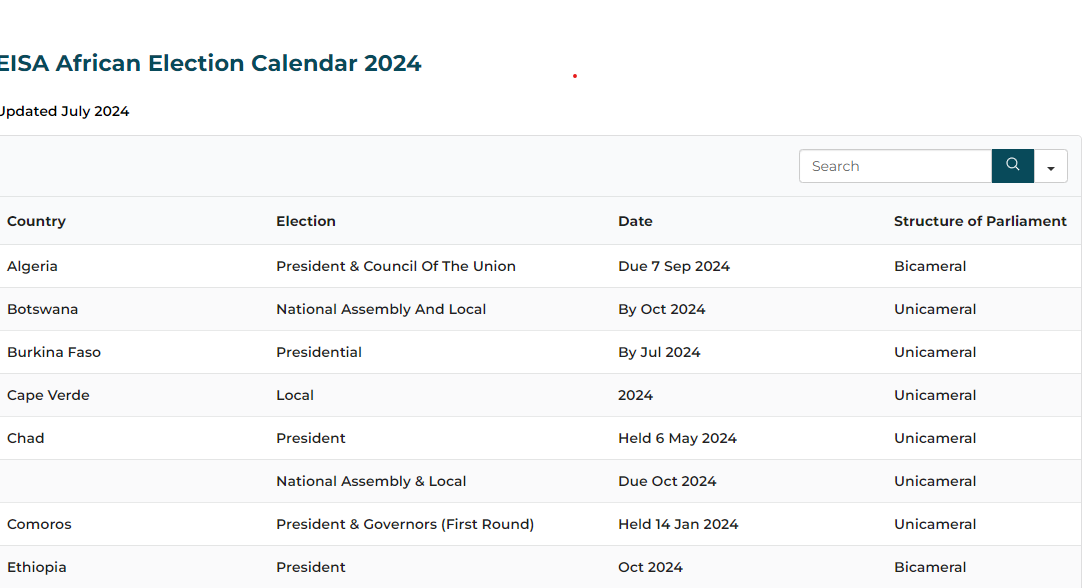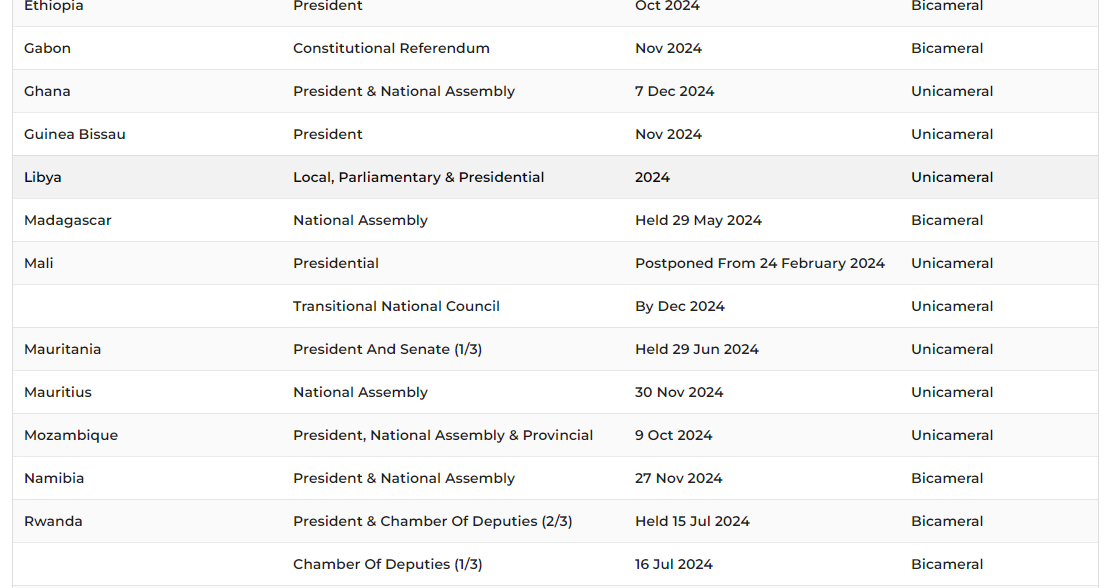Africa elections outlook: Ghana and the 26 nations heading to the polls this year
The Electoral Institute for Sustainable Democracy in Africa (EISA) reports a busy election calendar on the continent, with 21 countries expecting presidential polls before the end of the year.
A total of 27 general elections are expected in 2024, with potential consequences on governance and economic development.
Seven African nations have already conducted pivotal elections this year but many more are yet to decide on their leaders for the next term.
In recent years, Africa has seen significant shifts in election dynamics, reflecting broader trends in governance, technology, and societal expectations.
Presidential term limits vary widely across the continent, shaped by diverse constitutional frameworks and political histories.
Despite past challenges like fraud and violence, there is a rising demand for credible and inclusive electoral processes.
African nations are increasingly leveraging technology to enhance transparency, boost voter participation, and enable real-time monitoring by civil society and global observers.
Regional bodies like the African Union and ECOWAS play pivotal roles in election oversight and mediation, while countries enact reforms to strengthen electoral bodies and uphold judicial independence, aiming for transparent elections that uphold democracy and accountability.
Burkina Faso’s democratic elections set for July 2024 were indefinitely postponed by military leader Captain Ibrahim Traoré, signalling a potential delay in the agreed transition timetable and a bid to extend his rule after a coup in 2022.
Elsewhere, Idriss Déby assumed Chad’s presidency in 1991.
He was re-elected every five years until he died in 2021, equaling a total of 30 years in power.
In May 2024, Chad’s newly elected president, Mahamat Idriss Deby, was sworn in to succeed his late father.
Crossing over to East Africa, Comoros President Azali Assoumani pledged on May 26, 2024, to work for peace and rapidly grow the economy as he was sworn in for his fourth term in office, following a tense January election which his opponents claimed was tainted by voter fraud.
Long-term President Rwanda President Paul Kagame was entrusted to continue by his countryfolk, with a landslide victory.
In the island country of Madagascar, incumbent President Andry Rajoelina won a third term following a disputed election boycotted by the opposition and its supporters.
He won 59% of the vote to defeat his two closest rivals, ousted ex-President Marc Ravalomanana and Siteny Randrianasoloniaiko.
In South Africa, Cyril Ramaphosa was sworn in for his second term as President of South Africa in June 2024.
His re-election followed a groundbreaking coalition agreement between the ruling African National Congress (ANC) and opposition parties in Parliament.
Heading up north, Mauritania witnessed Mohamed Ould Ghazouani succeed in a historic power transfer.
In April 2024, Senegal inaugurated Bassirou Diomaye Faye as its new president, marking the remarkable journey of the once little-known opposition figure from prison to the palace within weeks.
Togo faced allegations of fraud as President Faure Gnassingbé secured a fourth term, highlighting diverse electoral landscapes across the continent.
Upcoming elections
The spotlight is now on the countries yet to select new leaders.
Ghana, for instance, gears up for pivotal elections on December 7.
Ghana’s upcoming election is crucial for both the incumbent party, the NPP and the opposition NDC, with rigorous modalities in place to ensure a fair and transparent process.
While the NPP hopes to break an eight-year jinx to continue in power, the NDC is staging a strong comeback.
Citizens eagerly anticipate casting their vote, confident that their voices will shape the nation’s future.
Ghana is in the same box as many other countries that have uncertain futures.
Here are the countries deciding on their next leaders before 2025.





